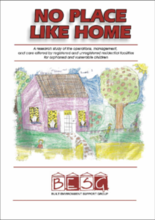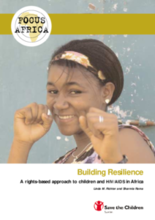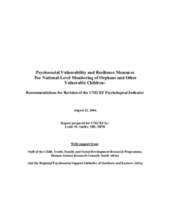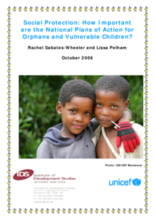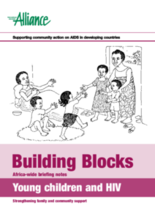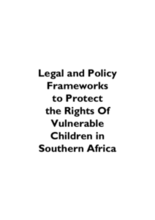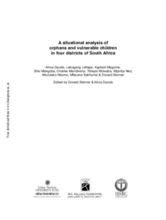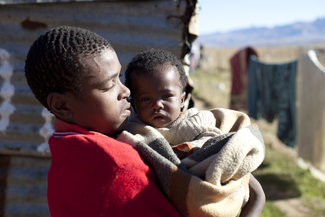

Displaying 511 - 520 of 576
A study of the management, operations, and care offered by institutions for AIDS orphans in South Africa. It compares the findings of registered and unregistered institutions.
Evaluation of four child-focused DDR projects funded by the World Bank Multi-Country Trust Fund in the DRC. Includes detailed strategic analysis and recommendations.
Examines how a rights-based approach can provide a firm foundation for framing priorities and responses to children and families affected by HIV/AIDS.
"According to the first stage of our research, there is no significant difference between children, based on their orphan status," Quinlan said. Orphaned children are doing as well in school and engaging in the same level of risk behavior as their non-orphaned counterparts.
This document discusses the work contributing to the area of psychosocial measurement with regard to HIV/AIDS and provides samples of surveys that can be used in measurement.
Through an examination of over 800 thematic drawings and stories, regarding ‘moving house’, produced by children aged 10–17 years in urban and rural communities of Lesotho and Malawi, this paper explores southern African children’s representations of migration.
This briefing paper emerges from a review of 14 national plans of action (NPA), or in the absence of a NPA, outputs from the rapid assessment analysis and action planning (RAAAP) work for orphans and children made vulnerable by HIV/AIDS. The purpose is to analyse the way that issues of social protection are incorporated into these plans and to highlight areas within the plans where social protection activity may be needed to achieve stated outcomes. Annex 3 summarises, country by country, the social protection content of each NPA.
Practical guidance on dealing with young children in the context of HIV/AIDS. Focuses on the developmental needs of children affected by HIV/AIDS. Also focuses on care and treatment provision for children who are HIV-positive.
Reviews legal and policy frameworks for the protection of OVC rights in 10 Southern African countries. Includes key concerns and recommendations. Appendix includes country-specific details of National Policies on Orphans and Vulnerable Children and National Plans of Action.
Identifies strengths and weaknesses of services offered to OVC in South Africa. A detailed list of recommendations suggests improvements to services.

